Mumbai is the capital city of Maharashtra and is often called the financial capital of India. It is a city that represents the duality of wealth and poverty. Among its diverse population, a significant number of widows face unique challenges that stem from social stigma, economic hardship, and legal obstacles.
The loss of one’s spouse means a cascade of problems, both in terms of fiscal instability and even social isolation, since the widow/widower tends to lose most of the essential resources. In response to these pressures, some NGOs have emerged throughout Mumbai to stand for and serve the widowed.
It takes the reader into an in-depth discussion of different NGO for Widows in Mumbai about their projects, challenges, and the positive impact they create on their lives.
Role of NGO in supporting widows

NGOs help effectively serve the needs of widows through the support services they can avail of and empower them economically, socially, and legally. NGOs in Mumbai are focusing on supporting widows as follows.
- Skill Development: Improving the ability of widows to offer or seek employment through vocational training.
- Legal Assistance: Providing legal support for inheritance rights and domestic violence cases.
- Community Support: Network building towards emotional support of these widows and fighting isolation.
- Nutritional and Financial Support: Offering food supplies and access to government schemes.
- Improving awareness among them about their rights and available support.
The total outcome is empowering widows, enhancing their quality of life, and anti-stigma in society.
Famous NGO For Widows in Mumbai
There are several organizations working towards the betterment of widows in Mumbai. Here are a few notable ones:
Akshara Centre
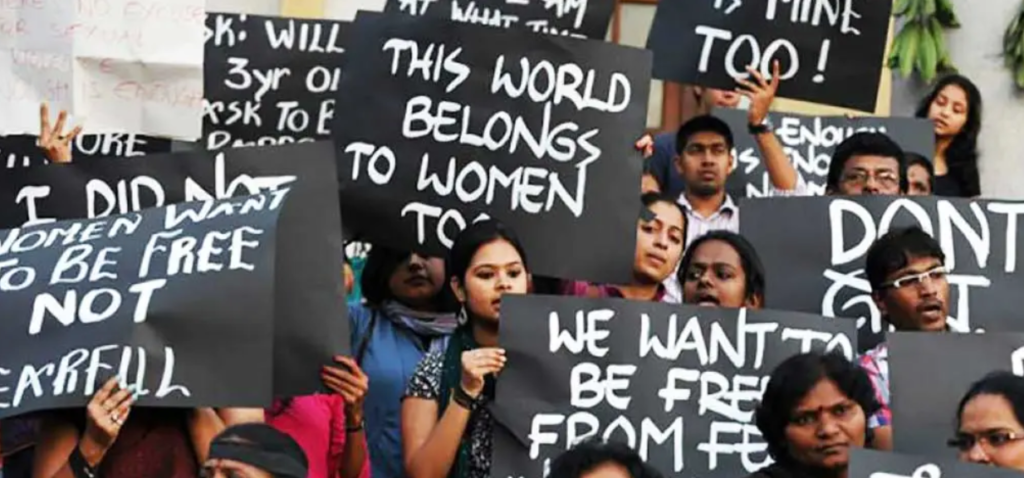
Overview: Akshara Centre was established in 1995 to support the empowerment of women, education, advocacy, and development of new skills. Its mission is to create a just society where women can live with dignity and equality.
Activities:
- Akshara offers training on vocational skill development through its tailoring, computer skills, and entrepreneurship programs.
- Legal knowledge workshops for women: Conducting legal knowledge workshops on the rights of women in inheritance and property rights.
- Awareness Campaigns: Akshara conducts a workshop that teaches women about their rights under Indian law.
Impact: This all-rounded approach has given thousands of women confidence back and independence in terms of money.
Website: https://aksharacentre.org/
AshaDeep Association
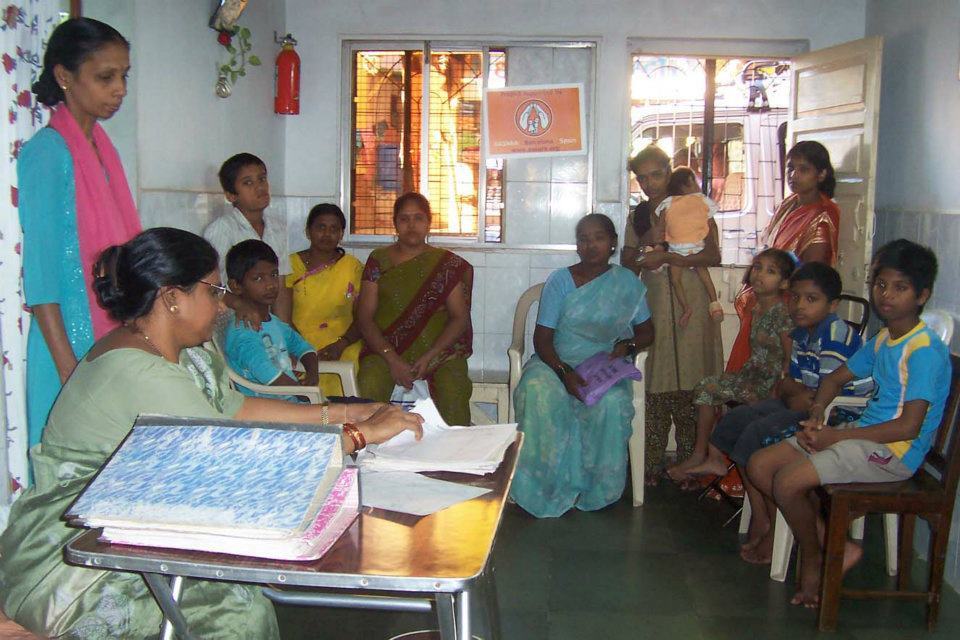
Overview: AshaDeep was founded in 1976 and has been striving for the comfort of single parents, orphans, and widows by working in the community.
Activities:
- Day Care Centers: AshaDeep also operates daycare centers. When their mothers leave to go to work, the children are kept safe.
- Education Support: They provide scholarships to the children of the widowed mothers so that they do not fall out of education.
- Nutritional Support: The organization provides meals and other basic requirements, such as clothes for both children and mothers.
- Skill Development: AshaDeep offers vocational training programs exclusively for widows.
- Community Engagement: AshaDeep encourages community engagement, which provides a supportive environment that reduces isolation among widows.
Impact: The organization has empowered numerous families through its essential services, hence allowing the mothers to work while ensuring that the children are educated.
Website: https://www.ashadeepassociation.org/
Maitri India
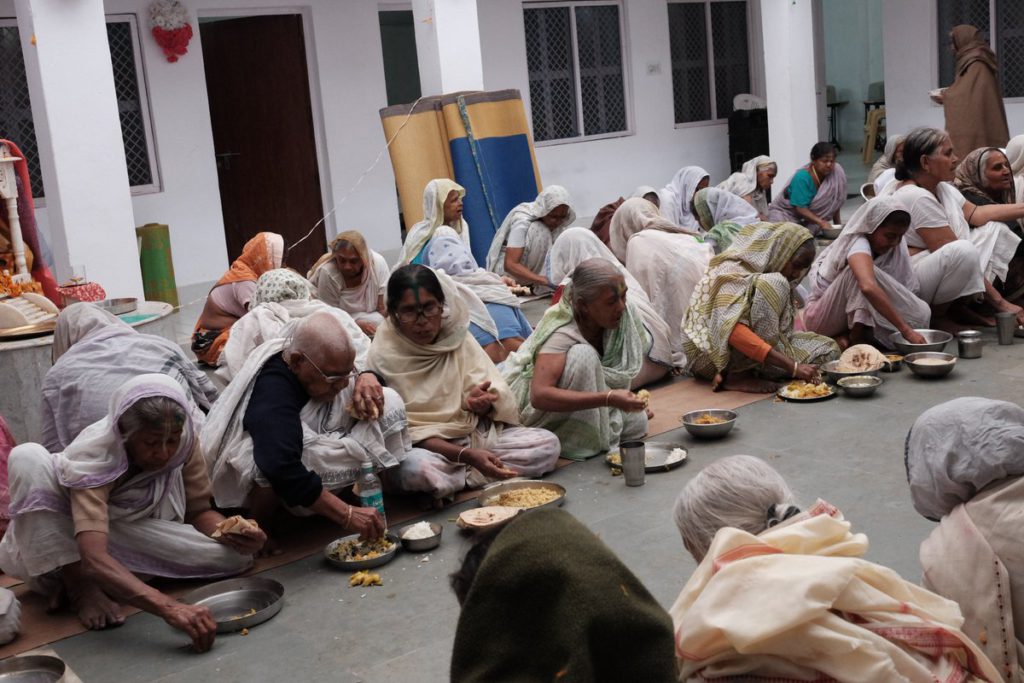
Overview: Maitri India seeks to empower women who suffer from domestic violence and social injustice through several programs.
Activities:
- Community Support System: Maitri provides community networks where women can share experiences and resources.
- Shelter Services: Maitri offers temporary shelters to women who are victims of domestic violence or abandonment.
- Legal Aid: The organization assists women in dealing with legal issues such as property rights and custody battles.
- Counseling Services: Maitri provides psychological counseling to help women deal with trauma.
Impact: It has returned the independence of many women by providing safe space and resources.
Website: https://www.maitriindia.org/
Srujna Charitable Trust
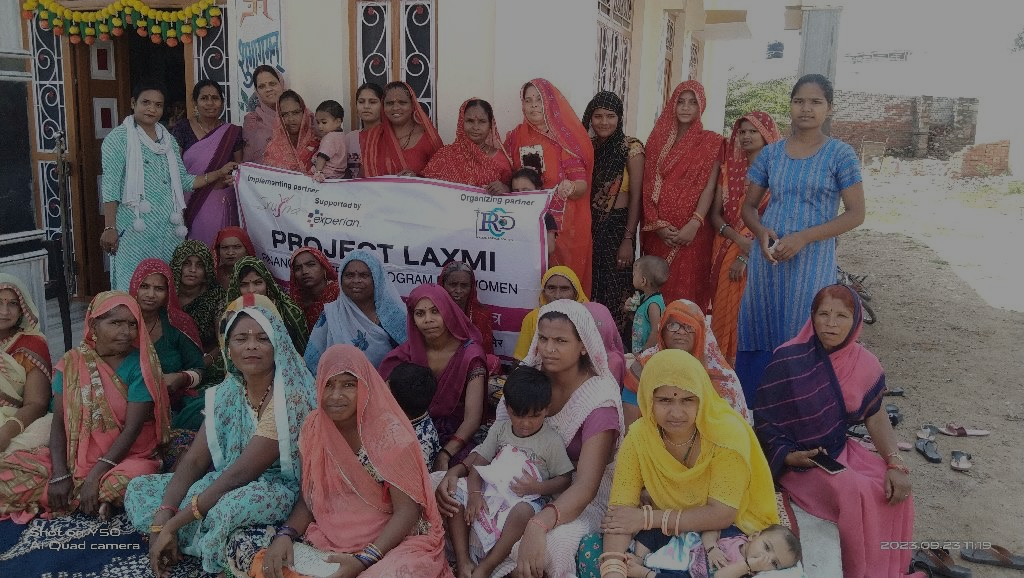
Overview: Srujna Charitable Trust is a non-profit organization that provides vocational training to targeted marginalized women. It was established in 2011.
Activities:
- Skill Development Workshops: Srujna provides training in various crafts like handicrafts, beauty services, and food processing.
- Financial Literacy Programs: They educate women on how to manage finances effectively.
- Microfinance Support: The organization provides microloans to enable the widows to establish small-scale businesses.
- Networking Opportunities: Srujna connects women entrepreneurs to each other and to others as a means of building networking capacity and mutual support.
Impact: Many women who have started enterprises with the assistance of Srujna report improved economic well-being for themselves and their family members.
Website: https://www.srujna.org/
Nanhi Pari Foundation
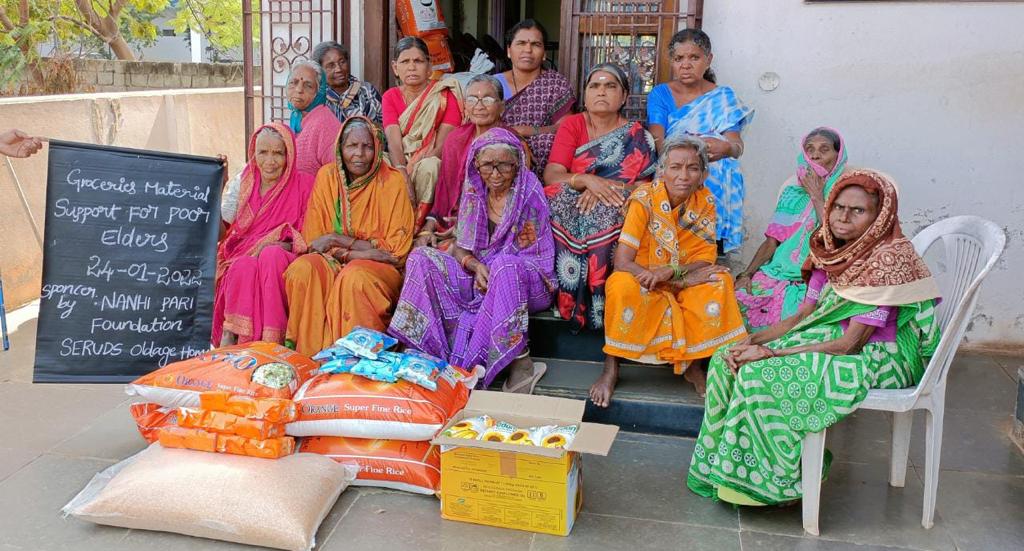
Overview: The Nanhi Pari Foundation works to solve social inequalities among girls and women in India.
Activities:
- Scholarships for girls who come from impoverished backgrounds.
- Skilling Women through Vocational training: They carry out training courses on the acquisition of specific skills by women, such as widows.
Impact: The core objective of Nanhi Pari is to give education and develop skills, hence making many women financially independent.
Website: https://nanhiparifoundation.org/
Manav Vikas Seva Sangh
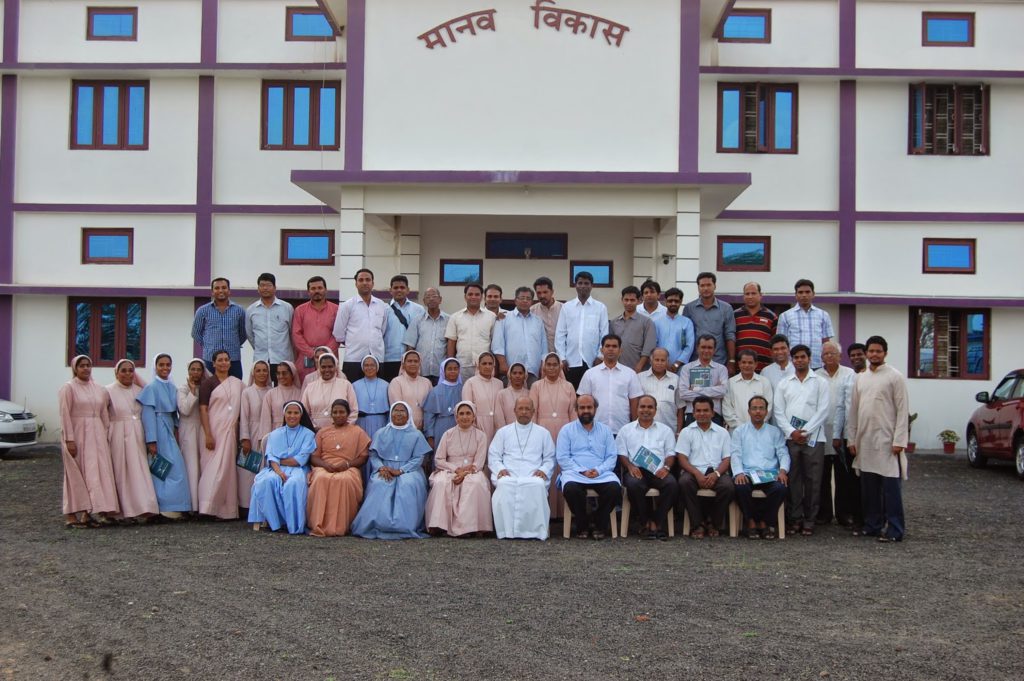
Overview: Established in 1969, this organization is engaged in sustainable development work comprising rehabilitation for widows.
Activities:
- Vocational or Income Generation Programmes: This organization offers sewing and handicraft training.
- Scholarship: Manav Vikas offers the scholarship to support the financial development of the widows’ economy.
Website: https://mvss.in/
Jeevan Ankur Trust
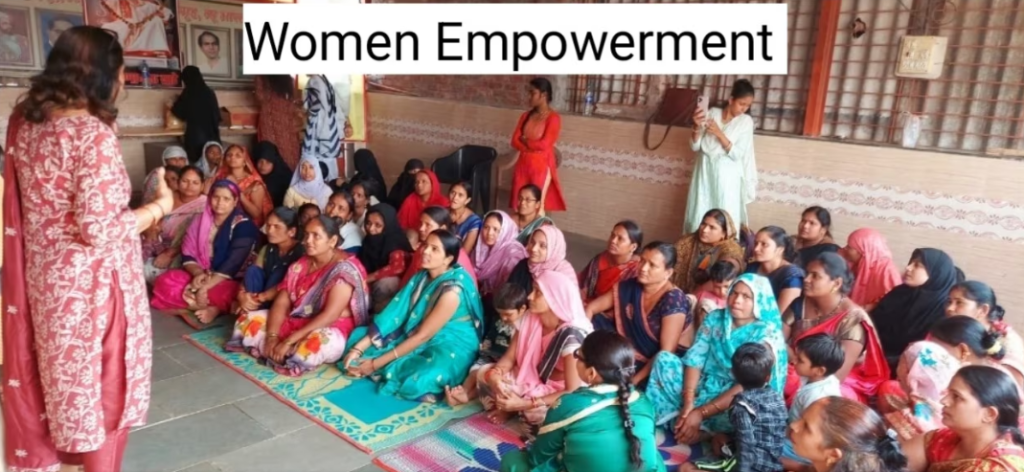
Overview: This organization is for the empowerment of the downtrodden women and their children with the help of different kinds of support services
Activities:
- Counseling Services: The trust offers counseling services for emotional support.
- Vocational Training Programs: They offer skill development workshops for widows.
- Legal Aid Support: They assist in dealing with legal issues regarding inheritance and rights.
Website: https://www.instagram.com/jeevan_ankur_trust/
Government Schemes for Widows
Apart from the NGO, the Maharashtra government has initiated a number of schemes that help the widows in the state:
Sanjay Gandhi Niradhar Yojana
This scheme provides financial assistance to people experiencing poverty, which involves the widows among its beneficiaries. To qualify, beneficiaries have to meet the family income criteria, and they receive monthly pensions.
Indira Gandhi National Widow Pension Scheme
This scheme is intended for widows only from the BPL category in the age group of 40 to 65 years. They would welcome it and bring them much-needed monthly financial aid.
Challenges in Implementation: However, these schemes introduced by the government are not better in terms of awareness and approachability. However, there are a number of people in need; quite a number don’t know, while others also don’t know where and how to request it or even apply it. Reasons propagate through bureaucratic red tape or lack of information.
Impact of NGOs on Widow Welfare
The work of NGOs in Mumbai has brought about a sea change in the lives of many widows:
- Empowerment through Education: Most organizations educate the widows about their rights and the resources available to them. This education empowers them to seek help and present their case more effectively.
- Economic Independence: Through vocational training programs, NGOs empower widows with skills that help them gain employment or even start their own businesses. This financial empowerment is essential in rebuilding their lives after loss.
- Community Building: NGOs often create networks where widows can connect with one another for support and encouragement. These communities help reduce feelings of isolation associated with widowhood.
- Legal Support: Many organizations provide legal assistance that enables widows to navigate matters regarding inheritance rights or domestic violence. Legal aid often transforms many women’s lives as they gain redress in regard to some injustices encountered following the demise of their husbands.
Challenges Faced by NGOs
NGOs have several challenges, including:
1. Operational Challenges:
- Constrained Resources: Most NGOs exist and operate under constrained budgets and workforce, which restricts their outreach and programs for expansion.
- Awareness and Outreach: The lack of awareness among the widows about services available makes communication difficult.
- Lack of data: Inadequate data regarding the number of widows and their needs hinders the development of specific programs.
2. Financial Challenges:
- Lack of Funds: All programs cannot be sustained due to inconsistent donations and grants.
- Competition for Resources: The keen competition among NGOs over funding may pose a challenge to the sustainability of long-term projects.
3. Social Barriers:
- Societal Stigma: Societal stigma attached to widowhood results in many not seeking assistance or participating in other community activities.
- Community Resistance: Some communities may also resist NGO efforts due to firmly held cultural practices.
- Social Isolation: Social exclusion makes it difficult for NGOs to reach out and interact with widows.
4. Legal Barriers
- Awareness of Rights: Most of the widows are not aware of their legal protection, making it difficult for NGOs to raise their awareness.
- Bureaucratic Procedure: Bureaucracy in procedures sometimes deters the widows from availing of benefits or getting legal assistance.
- Legal Support: Many NGOs lack legal knowledge that would enable them to deal with issues like inheritance and the rights of widows.
Future Way for NGO Interventions
Steps to Improve Widow Support Programs in Mumbai
- Interagency Partnerships: NGOs should develop effective interagency linkages with governmental departments so that existing widow support programs may be better delivered.
- Expanded Outreach: Increased information dissemination on what is available could help more women access vital services and support programs.
- Community Engagement: Involvement of the community can be nurtured, fostering supportive networks through which women’s empowerment can take place collectively rather than individually.
The Mumbai case of the plight of widows reflects more general issues related to gender inequality and cultural stigmas attached to widowhood. However, through the efforts of various NGOs and government initiatives, there is hope for change. Focusing on empowerment through education, economic independence, community support systems, and advocating against discrimination, these organizations are making strides in the improvement of widows’ lives in Mumbai.
The journey toward complete acceptance and equality for widows is still underway, but if NGOs and the society at large continue to speak out for the cause, there is hope that a better future awaits these strong women, who deserve dignity after loss. Let’s work together towards creating an environment where every woman can thrive, irrespective of her marital status or life circumstances, advancing into an uncertain future shaped by changing societal norms!
It puts the critical work of NGOs at the forefront, but it is equally essential for collective action to be taken to build a better society where the lives of individuals, especially those who are more vulnerable, are genuinely fulfilled and not tainted by stigma or discrimination.
Leave a Reply